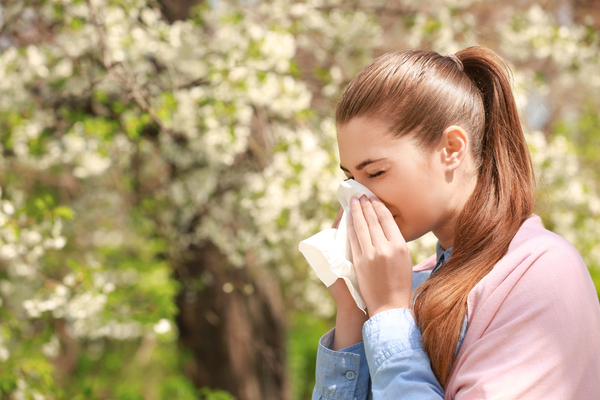Spring is underway with hints of summer right around the corner. The changing weather with the seasons can incite a symphony of sneezes and sniffles from allergy sufferers across the United States.
AccuWeather meteorologists are already warning that it could be a bad year for allergies due to the weather. “This year will start off much earlier than most years in the East,” AccuWeather Senior Meteorologist Alan Reppert said. “We could look at things to be a full month ahead of normal with tree pollen and still ahead with when grass pollen starts.”
Allergy experts in the United States track three factors throughout the year: Tree pollen, grass pollen and weed pollen. People may have different reactions to each type, so knowing when the pollen count for these plants will peak may help manage symptoms. “Tree is the first to come out,” Reppert explained. “Grass is during summer and weed pollen is the last we see in the late summer and fall.”
AccuWeather experts warn that it could be a bad year all around for allergies in the eastern United States, starting in midspring and not letting up until after the dog days of summer.
Tree pollen
Trees and plants are budding as much as three weeks ahead of schedule from New Jersey to Colorado, setting the stage for a bad year for allergy sufferers. “Warmer than historical average [conditions] in the mid-Atlantic and Northeast will make for a much quicker and more forceful start to the pollen season,” Reppert said.
New York City, Philadelphia, Washington, D.C., Kansas City and Denver are a handful of major metropolitan areas where tree pollen will not only arrive early but could reach levels higher than past seasons. Tree pollen may not be as intense across the Southeast, but Reppert warns that the season could last longer than in recent years. The northern Plains and Pacific Northwest are likely to escape the worst of the tree pollen, but that will not be the case as the year progresses and other allergens arise.
Grass pollen
As spring transitions to summer, the primary allergy concerns will shift to grass pollen, and it could be a doozy for millions in the East.
An “intense and prolonged” grass pollen season is in the offing for the interior Northeast and Midwest, Reppert said. Some areas of Washington and Oregon may deal with elevated grass pollen levels throughout the summer. The peak of the pollen levels will likely occur around Independence Day when millions of people spend time outdoors for parades, barbecues and firework displays.
There could be some reprieve from the grass pollen along the Atlantic coast, with Reppert citing July and August as a window when pollen levels could drop due to a slight downturn in rainfall. Grass-related pollens are also expected to be near or below historical averages for most of the Plains, Rocky Mountains and into the Southwest.
Weed pollen
The most widespread pollen-related issues in the U.S. are likely to occur during the second half of the summer in more than two dozen states. A hyperactive weed pollen season is predicted to occur due to widespread warmth, including in parts of the eastern U.S. that experience high tree pollen and grass pollen earlier in the year.
The weed pollen concerns will extend well beyond just the East Coast. “Moisture will make a rapid surge in weed pollen over the Pacific Northwest and into the northern Rockies and northern Plains,” Reppert said.
Worst Cities for Allergies in 2024
The Asthma and Allergy Foundation of America (AAFA) released its annual list of cities that have some of the worst allergy conditions for residents. “This year, Wichita, Kansas, takes the top spot due to its higher-than-average tree and grass pollen, higher-than-average medicine use, and limited access to allergy specialists,” the AAFA said on its website. Virginia Beach, Virginia, ranked second on the list, followed by Greenville, South Carolina; Dallas and Oklahoma City.
Tips from the Experts
Here are some tips from Reppert on how people who suffer from seasonal allergies could mitigate the side effects of their allergies:
•Take medicine before the issues begin
•Try and stay inside in the late morning and afternoon hours
•On high pollen days, air conditioning can help decrease pollen indoors
•If allergy issues are not handled by first-line allergy medicines, talk to your doctor about getting allergy testing done with an allergist
—
Photo Credit: Africa Studio / Shutterstock.com
